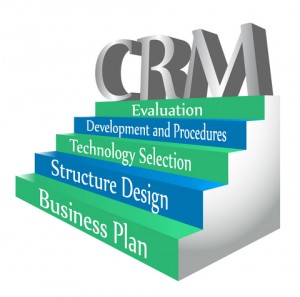 The process of managing customer relations through their experience with the sales, employees and other aspects of the business requires the use of some type of CRM software or procedure. In today’s technology driven world, the best CRM for small business is one that will grow with the company and not have to be replaced for a more robust program.
The process of managing customer relations through their experience with the sales, employees and other aspects of the business requires the use of some type of CRM software or procedure. In today’s technology driven world, the best CRM for small business is one that will grow with the company and not have to be replaced for a more robust program.
CRM software helps a business keep track of sales, creates a client database and allows the business to offer more of what the customer wants due the built-in tracking programs. However, many small businesses put off purchasing a CRM program because they don’t know if they have reached the point in their business that they need to have this tool. The following information should help the small business determine when they need a CRM program and other information concerning the CRM.
Lower Cost Software
Today, the cost of purchasing CRM software has become much more affordable and so the decision to purchase CRM software isn’t usually about the cost. There are software programs that are as inexpensive and can be purchased on a monthly basis. This type of CRM software is typically not outright purchased, but is instead used for as long as the business needs it. The cost of this is much less than outright purchasing and allows for a more robust CRM program to be implemented for less money.
Businesses should consider implementing this lower cost software in the early stages of their business regardless of the number of employees. This early implementation allows for tracking of the business sales and clients to start early in the business and thus provide more accurate historical data later in the life of the business. The CRM will also be important in satisfying customers and ensuring that employees and customers alike are receiving the best the company has to offer.
Is CRM Worth Cost, Time and Effort?
Many small business owners ponder over CRM software because of the time that it takes to implement it and get employees trained on how to use it. This is another reason that implementing the software early in the business will pay off in the long run. It is easier to train someone on something when that is how they see the business being handled than it is to have them learn the business one way and then spring a new method on them.
Today’s CRM are so low-cost that it simply doesn’t make good business sense not to have one in place.
What Can CRM Offer
In order to justify adding CRM to a business, most business owners want to know what it will do for the business, some of those reasons are outlined below.
• Increase value provided to customers: CRM will assist the business owner by preventing the quality of the product or service that the customers receives from being compromised while at the same time simplifying the costs involved with the business practices. This could include organizing and reducing costs of travelling, reducing budgets for supplies or seeking better pricing for healthcare and other employee perks.
- Marketing: CRM is crucial in creating marketing strategies that are more effective. This means that the marketing programs that are in place will have to be examined to determine if they are effective or not. The only time that marketing budgets should ever be cut is when they are not working. Marketing is the last place that a budget should be cut as this is the area that is bringing in money to for the business.
- Contact Management: This is an important aspect of CRM in that it allows the business to keep track of all clients and what they have spent or done with the company over time. Many of the CRM programs will also integrate with other software such as email clients like Outlook. This type of management allows the clients who visit the business online to contact the business anytime and feel assured that their message will be sent to the company because of the CRM software that is in place.
Once the CRM recognizes that the client has placed a request, it goes into action and alerts the business owner via built-in tools. Most CRM software can be set up to reply to the client with a ‘thank you’ or other message that is customized by the business.
CRM software can save a business thousands of dollars in lost revenue simply because of clients not receiving an answer or ‘second touch’ from the business after they send in a request.
CRM has much more to offer a business than what is stated herein. The business owner should research and explore options in CRM that will benefit their business and choose the one they feel fits their clients and employees.









